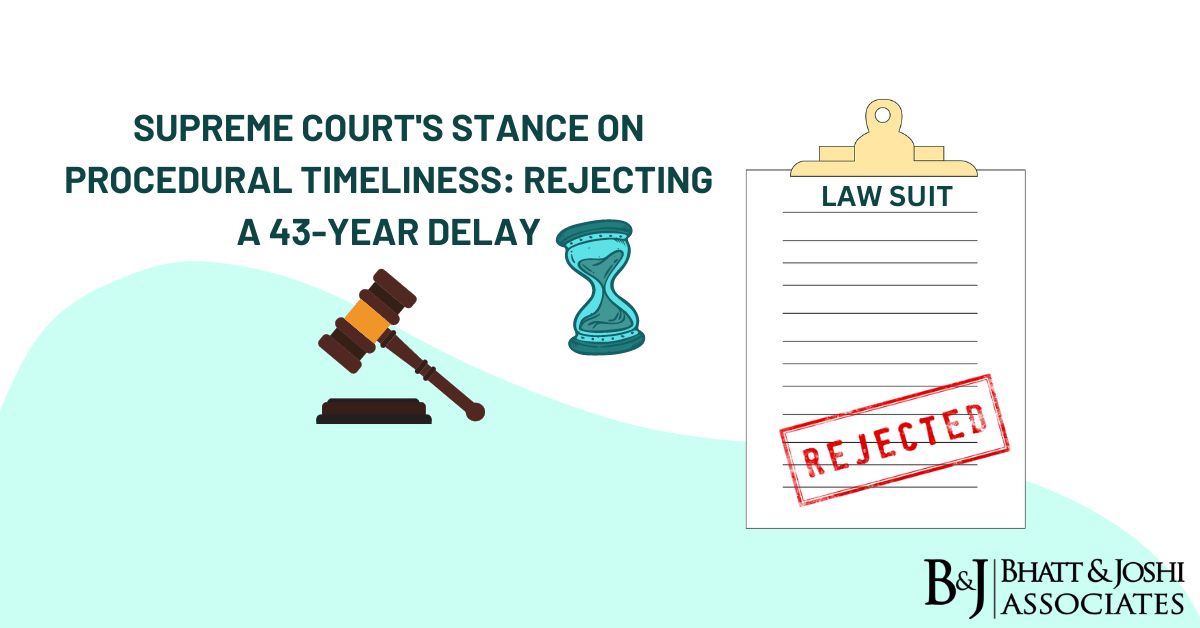Supreme Court Judgment on Delay: Stance on Procedural Timeliness, Rejecting a 43-Year Delay

Introduction to the Case
Supreme Court Judgment Remarks on Delay in Case Proceedings
Justice J.B. Pardiwala, authoring the judgment, underscored the principle that the law of limitation serves a crucial role in the administration of justice. It aims to prevent the perpetual uncertainty that can arise from unending litigation. The judgment noted:
“It would be a mockery of justice if we condone the delay of 12 years and 158 days and once again ask the respondent to undergo the rigmarole of the legal proceedings.”
The Court expressed its disapproval of the Union of India’s attempt to extend its period of limitation, highlighting that such actions could not be deemed anything but deliberate.
Legal Analysis: Procedural Timeliness in Supreme Court’s Observations
The judgment addressed crucial aspects underpinning the legal framework regarding the condonation of delays, notably touching upon the principles of equity and public policy that inform the rules of limitation.
The Supreme Court’s Observations:
- Importance of Diligence: The Court emphasized that both private parties and governmental entities must demonstrate diligence in pursuing legal remedies. The absence of such diligence, especially over an extended period, cannot be overlooked in favor of mere technicalities.
- The Principle of Limitation: Highlighting the significance of the limitation period, the judgment reiterates that the rules of limitation are founded on sound principles of public policy and equity, ensuring that litigation does not become endless.
- Substantial Justice vs. Technical Considerations: While substantial justice is paramount, it should not come at the expense of causing prejudice to the opposite party due to undue delays.
Supreme Court Judgment Remarks on Delay in Case Proceedings
In its concluding observations, the Court maintained that the High Court’s decision to refuse the condonation of delay, exercised under its supervisory jurisdiction via Article 227 of the Constitution, was devoid of any legal error. The Supreme Court affirmed:
“Rendering substantial justice is not to cause prejudice to the opposite party… The appellants have failed to prove that they were reasonably diligent in prosecuting the matter and this vital test for condoning the delay is not satisfied in this case.”
Conclusion: Procedural Timeliness in Supreme Court’s Delay Judgment
This landmark judgment by the Supreme Court of India serves as a stark reminder of the critical importance of adhering to the prescribed timelines in legal proceedings. It highlights the Court’s unwavering stance on not allowing entities, including the Union of India, to bypass the established principles of limitation under the guise of seeking substantial justice. The ruling reinforces the notion that the law of limitation is not a mere technicality but a fundamental principle that upholds the fairness and efficacy of the legal system.
 Whatsapp
Whatsapp

